How to Get an FHA Loan While in Chapter 13 Bankruptcy in 2025
Navigating the financial landscape during Chapter 13 bankruptcy can be a daunting task, especially if you hope to secure a home loan. However, if you’re considering purchasing a home in 2025 and find yourself in the middle of a Chapter 13 bankruptcy, there’s good news: you can still qualify for an FHA loan. This article will guide you through the steps and eligibility requirements for obtaining an FHA loan while in Chapter 13, along with the essential considerations and tips for a smooth application process.
What is Chapter 13 Bankruptcy?
Chapter 13 bankruptcy is a repayment plan that allows individuals to reorganize their debts and repay them over a period of 3 to 5 years. Unlike Chapter 7 bankruptcy, where assets may be liquidated, Chapter 13 allows you to retain your property while making scheduled payments to creditors. Once you’ve successfully completed your repayment plan, the remaining unsecured debts may be discharged.
Though Chapter 13 bankruptcy significantly impacts your credit score and financial situation, it is still possible to qualify for a loan — particularly a Federal Housing Administration (FHA) loan.
Can You Get an FHA Loan While in Chapter 13 Bankruptcy?
Yes, you can get an FHA loan while in Chapter 13 bankruptcy, but there are specific requirements and guidelines you must meet. The FHA is more flexible than conventional loan programs, understanding that life circumstances can lead to financial difficulties. Chapter 13 bankruptcy is one such circumstance that doesn’t necessarily disqualify you from homeownership.
In 2025, the FHA continues to offer opportunities for individuals in Chapter 13 to secure a home loan, but there are a few key conditions that must be met. Let’s break down what you need to know to successfully navigate this process.
FHA Loan Requirements for Chapter 13 Bankruptcy in 2025
1. Completion of At Least One Year of Your Chapter 13 Repayment Plan
To qualify for an FHA loan while in Chapter 13 bankruptcy, you must have made consistent payments for at least one year under your repayment plan. The FHA requires that you demonstrate a responsible payment history in your Chapter 13 case.
Additionally, the bankruptcy court must approve your request for a mortgage during your repayment period. This is an important step, and without the court’s approval, you will not be able to proceed with applying for an FHA loan.
2. Prove Your Ability to Afford the Mortgage Payments
Since you are still in bankruptcy, the FHA will want to ensure that you have the financial capacity to take on the new debt. You’ll need to show that your current financial situation is stable and that you can afford the mortgage payments.
This means providing evidence of your income, including pay stubs, tax returns, and other documentation that proves your financial stability. The lender will assess your debt-to-income (DTI) ratio to ensure it falls within acceptable limits. FHA guidelines typically allow for a maximum DTI of 43%, though some lenders may be more flexible depending on your specific situation.
3. Get Court Approval
As mentioned earlier, you’ll need approval from the bankruptcy court to take on a mortgage while still in Chapter 13. The court will review your payment history and financial situation to ensure that taking out a mortgage won’t interfere with your ability to meet your existing obligations.
If the court gives its approval, you can proceed with your FHA loan application. Without this approval, your application may be denied.
4. Demonstrate Good Credit Since Filing for Bankruptcy
While having a bankruptcy on your record will likely lower your credit score, the FHA allows individuals to apply for a loan even with a recent bankruptcy. However, your credit history since filing for bankruptcy will be scrutinized. Lenders will look for signs of improvement, such as timely payments on all your existing debts and any other credit accounts you have maintained since your bankruptcy filing.
Typically, a credit score of 580 or higher is required to secure the full 3.5% down payment option on an FHA loan. If your credit score is below 580, you may still qualify for an FHA loan, but you might need a larger down payment.
5. Consistent Payment History in Chapter 13
To strengthen your case for an FHA loan, it’s crucial to demonstrate a consistent payment history. Missing payments or failing to follow your repayment plan can hinder your ability to qualify. A solid track record of paying your Chapter 13 plan on time will show lenders that you’re financially responsible, even during tough times.
Steps to Take to Get an FHA Loan While in Chapter 13 Bankruptcy
Step 1: Consult with Your Bankruptcy Trustee
Before you apply for an FHA loan, it’s essential to speak with your bankruptcy trustee. The trustee is the person overseeing your Chapter 13 repayment plan, and they can help you understand whether your current situation makes you eligible to apply for a mortgage.
The trustee will also need to approve your application, so working with them early in the process is vital.
Step 2: Get Pre-Approved for an FHA Loan
Once you have the court’s approval and the trustee’s consent, the next step is to get pre-approved for an FHA loan. This involves submitting your financial documents, including:
•Proof of income
•A list of your current debts
•A copy of your Chapter 13 repayment plan
•Your credit history since the bankruptcy filing
The pre-approval process will help you understand what you can afford and ensure that you’re not wasting time applying for loans you might not qualify for.
Step 3: Shop for an FHA Lender
FHA lenders have specific requirements, and some may be more willing to work with borrowers in Chapter 13 bankruptcy than others. It’s a good idea to shop around and compare loan terms, interest rates, and lender flexibility.
Some online platforms, like Forever Home Financing, specialize in helping individuals with unique financial situations, including those in Chapter 13 bankruptcy. It’s important to choose a lender that understands your needs and can offer you the best terms for your situation.
Step 4: Submit Your Loan Application
After securing pre-approval and choosing your lender, you’ll need to submit your formal loan application. This will involve submitting additional documentation, including your bankruptcy papers and court approval for the mortgage. Once the lender reviews your application and confirms your eligibility, they will finalize the loan terms.
Step 5: Close on Your Loan
If all goes well and your application is approved, you’ll move forward with the closing process. This involves signing the necessary documents, completing any additional requirements, and officially becoming a homeowner.
What Are the Benefits of an FHA Loan for Chapter 13 Bankruptcy Filers?
An FHA loan offers several advantages for those in Chapter 13 bankruptcy, including:
•Lower Down Payment Requirements: One of the main benefits of an FHA loan is the low down payment. If you have a credit score of 580 or higher, you may be able to secure a 3.5% down payment, which is much lower than conventional loans, which often require 20% down.
•Flexible Credit Requirements: FHA loans are known for their leniency with credit scores. Even though bankruptcy will impact your credit, FHA loans allow for a fresh start, making homeownership more accessible.
•No Prepayment Penalties: FHA loans typically do not impose penalties for early repayment, so you can pay off your mortgage faster without facing extra fees.
•Fixed Interest Rates: FHA loans offer fixed interest rates, meaning your monthly payments will remain stable and predictable throughout the life of the loan.
Conclusion
While navigating Chapter 13 bankruptcy can be challenging, it’s possible to secure an FHA loan in 2025 if you follow the necessary steps. By demonstrating a solid payment history, obtaining court approval, and meeting the FHA’s requirements, you can take the first step toward homeownership. Working with knowledgeable lenders like Forever Home Financing can also help streamline the process and improve your chances of success.
For more information on FHA loans and eligibility requirements, visit HUD.gov. With the right preparation and support, you can achieve your dream of owning a home, even while managing a Chapter 13 bankruptcy.

